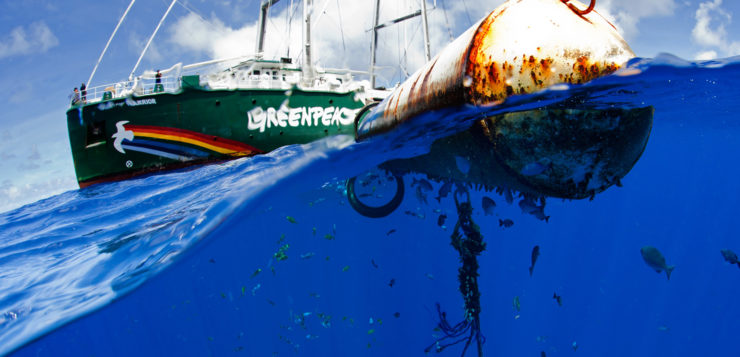A senior Greenpeace official has applauded a historic commitment from the Australian government to protect the world’s oceans, but warned the ongoing expansion of fossil fuels by the Albanese Government is incompatible with a healthy marine environment.
David Ritter, the long-serving CEO of Greenpeace Australia Pacific, described the development as a “a critical step forward in the fight to protect our global oceans” but warned Australia still wasn’t acting in-line with broader scientific principles.
Speaking at the UN General Assembly meeting in New York, Foreign Minister Penny Wong announced overnight that Australia will sign the ‘High Seas Treaty’ alongside dozens of other nations. Almost two decades in the making, the legally-binding pact, agreed in March, must still be ratified by individual countries before it comes into effect.
“We welcome the tremendous news from New York that the Australian Government will sign the High Seas Treaty — a critical step forward in the fight to protect our global oceans from the myriad threats they face,” Mr Ritter said. “The Treaty is a powerful tool to protect our oceans.
“Now the Australian government must act just as swiftly to deliver protected ocean sanctuaries where marine life can recover and thrive, including the South Tasman Sea between Australia and New Zealand which has been identified as an area of ecological significance.”

But Mr Ritter said while the Albanese Government “must be applauded for this historic decision”, Australia also had to act on the settled science that “fossil fuels are driving the climate crisis, which is having severe consequences on marine environments in Australia and the Pacific”.
“If left unchecked, climate impacts will devastate fisheries, ecosystems and economies,” he said.
“This week, the Bureau of Meteorology officially declared an El Niño weather event for Australia, meaning a summer of brutal heatwaves and extreme weather looms. Just weeks into Spring, we’ve already seen ‘off-the-scale’ ocean temperatures recorded in the Tasman Sea, and the threat of another mass coral bleaching event on the Great Barrier Reef looks increasingly likely.
“The expansion of the fossil fuel industry is incompatible with a healthy marine environment.”
Mr Ritter urged Environment Minister Tanya Plibersek to “recognise the enormous threat that projects like Woodside’s Burrup Hub” – a $50 billion liquid natural gas project in the north west of WA – pose to our oceans”.
In May this year, the Albanese Government approved its first coal mine, since coming to power one year earlier.
The Isaac River coalmine in Queensland’s Bowen basin is expected to produce about half a million tonnes of ‘coking coal’ each year, for five years. Coking coal, also known as metallurgical coal, is used in steelmaking.
Donate To New Matilda
New Matilda is a small, independent media outlet. We survive through reader contributions, and never losing a lawsuit. If you got something from this article, giving something back helps us to continue speaking truth to power. Every little bit counts.




